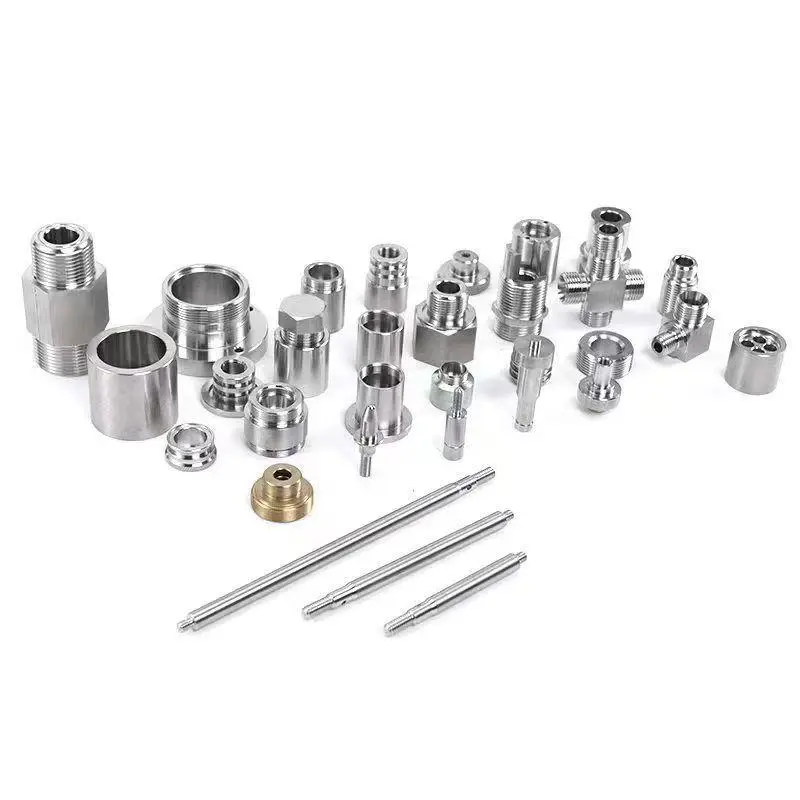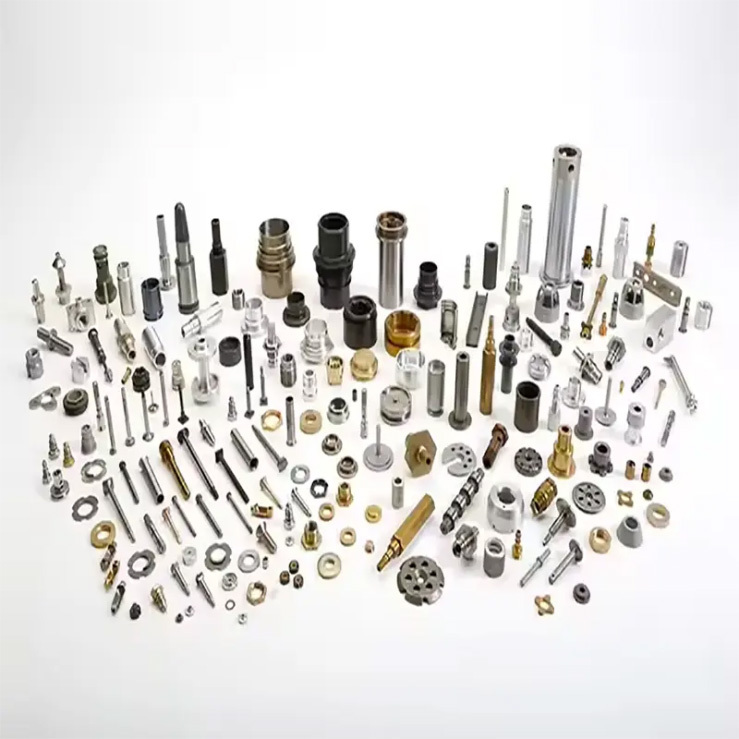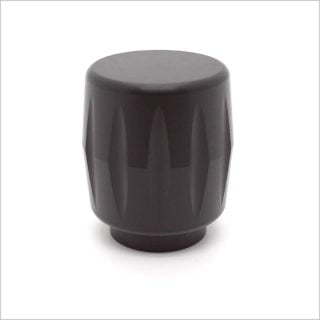Why Aerospace Machined Parts are Essential for Modern Aircraft
Published Time:
2025-08-15
Why Aerospace Machined Parts are Essential for Modern Aircraft
Table of Contents
- Introduction to Aerospace Machined Parts
- The Role of Machined Parts in Aerospace Engineering
- Key Materials Used in Aerospace Machined Parts
- Precision Engineering and Manufacturing Techniques
- Benefits of Aerospace Machined Parts in Modern Aircraft
- Challenges in Manufacturing Aerospace Components
- Future Trends in Aerospace Machined Parts
- Conclusion
- Frequently Asked Questions
Introduction to Aerospace Machined Parts
Aerospace machined parts are critical components that play an indispensable role in the performance, efficiency, and safety of modern aircraft. The aerospace industry is characterized by stringent quality standards and regulatory requirements, making the precision and reliability of these parts paramount. In this article, we will delve into the various aspects of aerospace machined parts, from their manufacturing processes to their significance in contemporary aviation.
The Role of Machined Parts in Aerospace Engineering
Aerospace engineering relies heavily on **machined parts** for the assembly of aircraft. These parts include everything from engine components to structural elements that form the airframe. Each part must meet specific design and performance criteria to ensure that it functions effectively under the extreme conditions of flight.
Importance of Precision
Precision in the manufacturing of aerospace machined parts cannot be overstated. The tolerances required in aerospace applications are often measured in microns. This level of precision is necessary to ensure that components fit together seamlessly, reducing the chance of mechanical failure during flight.
Compliance with Standards
Manufacturers of aerospace machined parts must comply with various international standards, such as AS9100, which governs quality management in the aerospace sector. Compliance with these standards ensures that parts are manufactured consistently and can withstand the rigorous demands of aviation.
Key Materials Used in Aerospace Machined Parts
The selection of materials for aerospace machined parts is critical to their performance. Common materials include:
Aluminum Alloys
Aluminum alloys are lightweight and offer excellent strength-to-weight ratios, making them ideal for aircraft structures. They are commonly used in the manufacturing of wings, fuselage, and various internal components.
Titanium Alloys
Titanium is renowned for its strength and corrosion resistance, which makes it an excellent choice for high-stress applications such as engine components and landing gear. Although more expensive than aluminum, its performance advantages justify the cost.
Composite Materials
Composite materials, such as carbon fiber reinforced polymer (CFRP), are increasingly being used in modern aircraft. These materials offer exceptional strength and reduced weight, contributing to enhanced fuel efficiency.
Precision Engineering and Manufacturing Techniques
The manufacturing of aerospace machined parts involves several techniques that ensure the utmost precision and quality.
CNC Machining
Computer Numerical Control (CNC) machining allows for the precise shaping of materials into complex geometries. CNC machines can produce high volumes of parts with consistent accuracy, making them ideal for aerospace applications.
3D Printing
Additive manufacturing, or 3D printing, is revolutionizing the aerospace industry by allowing for the creation of intricate parts that were previously impossible to manufacture using traditional methods. This technique reduces waste and can significantly lower production costs.
Electroforming
Electroforming is a process where metal is deposited onto a mandrel to create intricate shapes. This technique is often used for components requiring fine details and smooth finishes, such as turbines and valves.
Benefits of Aerospace Machined Parts in Modern Aircraft
Aerospace machined parts provide a multitude of benefits that enhance the overall performance of aircraft.
Increased Safety
The rigorous testing and quality assurance processes that aerospace machined parts undergo contribute to the overall safety of aircraft. Parts are designed to withstand extreme conditions, ensuring reliability during flight.
Improved Performance
High-quality machined parts enhance the performance of aircraft by reducing weight and improving aerodynamics. Lighter aircraft consume less fuel, which translates to cost savings and reduced environmental impact.
Longevity and Durability
Aerospace machined parts are engineered for durability, with materials and designs that minimize wear and tear. This longevity reduces maintenance costs and downtime, allowing airlines to operate more efficiently.
Challenges in Manufacturing Aerospace Components
Despite the advances in technology, the manufacturing of aerospace machined parts is fraught with challenges.
Cost of Materials
High-performance materials such as titanium and advanced composites come at a premium cost. This can pose challenges for manufacturers in terms of pricing and profitability.
Complexity of Designs
The complexity of modern aircraft designs requires advanced manufacturing techniques and skilled labor. This can lead to longer production times and increased costs.
Regulatory Compliance
Staying compliant with stringent regulations is essential for aerospace manufacturers. Non-compliance can lead to significant financial repercussions and damage to a company’s reputation.
Future Trends in Aerospace Machined Parts
The aerospace industry is constantly evolving, and several trends are shaping the future of aerospace machined parts.
Increased Use of Automation
Automation is set to play a significant role in the manufacturing of aerospace components. Incorporating robotics and AI can enhance precision, speed, and efficiency in production processes.
Sustainable Manufacturing Practices
As the aviation industry moves towards sustainability, manufacturers are exploring eco-friendly materials and processes. This includes recycling metal scraps and using bio-based materials for certain applications.
Integration of Smart Technologies
The incorporation of smart technologies, such as IoT devices and sensors, into aerospace machined parts is on the rise. These technologies can monitor the performance of parts in real-time, leading to predictive maintenance and improved safety.
Conclusion
In summary, aerospace machined parts are the backbone of modern aircraft, ensuring safety, performance, and efficiency. As technology continues to evolve, the manufacturing processes and materials used in these parts will also advance. Embracing innovation in precision engineering, material science, and sustainable practices will be vital for the future of aerospace manufacturing. By recognizing the essential role of these components, we can appreciate the complexity and dedication involved in the aerospace industry.
Frequently Asked Questions
1. What are aerospace machined parts?
Aerospace machined parts are precision-engineered components used in aircraft manufacturing, including parts for engines, fuselage, and control systems.
2. Why are precision and quality important in aerospace parts?
Precision and quality are crucial in aerospace parts due to the safety and performance demands of flight, where even the smallest error can lead to catastrophic failure.
3. What materials are commonly used in aerospace machined parts?
Common materials include aluminum alloys, titanium alloys, and composite materials like carbon fiber reinforced polymer (CFRP).
4. How does CNC machining benefit the aerospace industry?
CNC machining provides high precision and repeatability, allowing manufacturers to produce complex parts consistently and efficiently.
5. What future trends are impacting aerospace machined parts?
Future trends include increased automation, sustainable manufacturing practices, and the integration of smart technologies for real-time performance monitoring.
By equipping ourselves with knowledge about aerospace machined parts and their significance, we can better understand their vital contribution to the aviation industry and the future of air travel.
NewsCenter
Beijing Pafinal Precision Machinery Co., Ltd.
Email:sales@pafinal.com

Address: No. 239 Huanhe South Road, Tianjin Pilot Free Trade Zone (Airport Economic Zone), Tianjin
sales@pafinal.com:
Whatsapp:
在线客服添加返回顶部
图片alt标题设置: PAFINAL
表单验证提示文本: Content cannot be empty!
循环体没有内容时: Sorry,no matching items were found.
CSS / JS 文件放置地




 2025-09-28
2025-09-28


